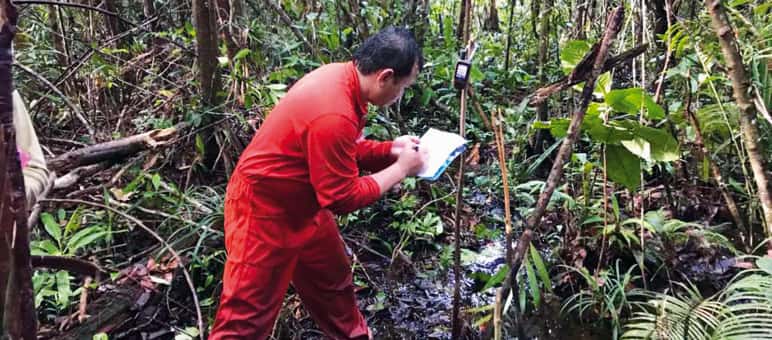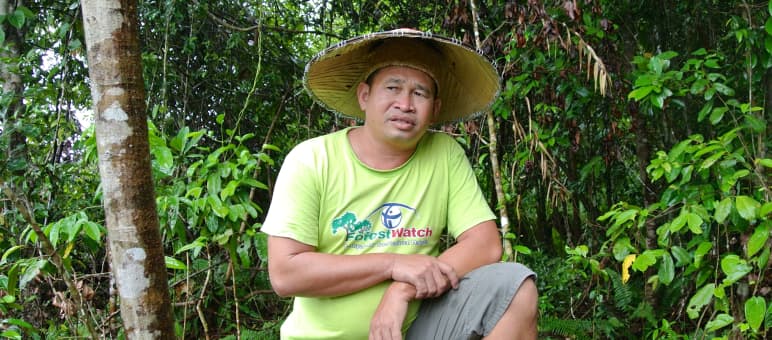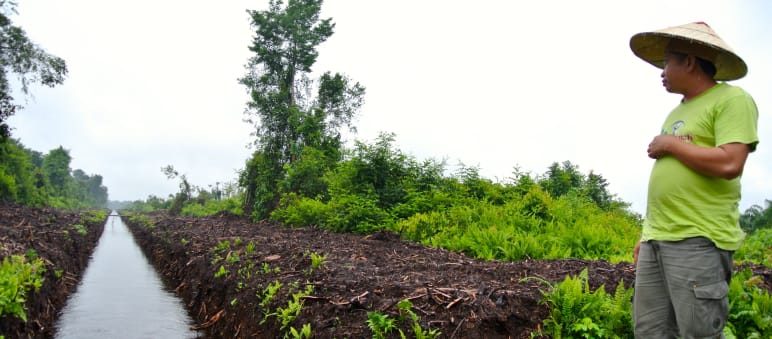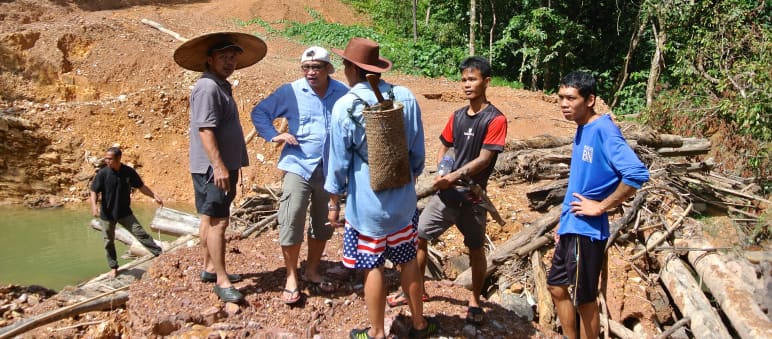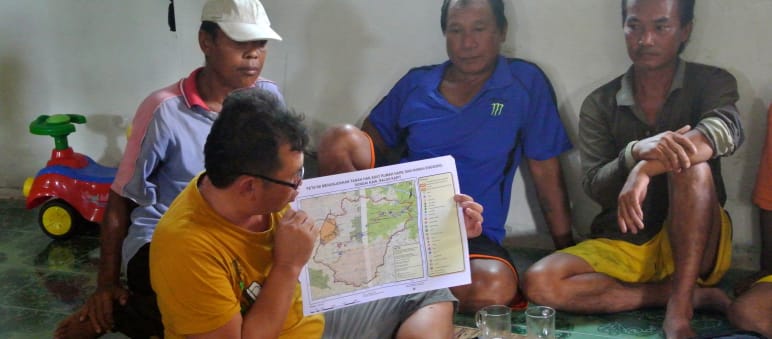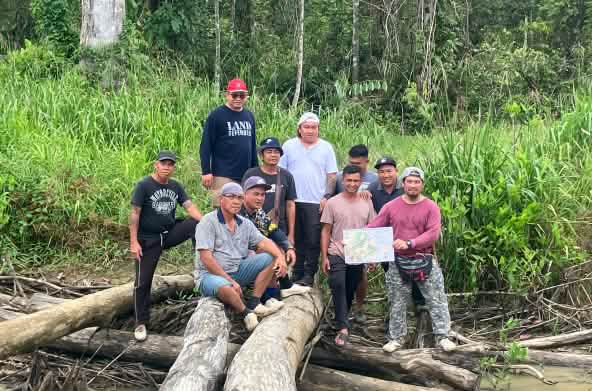Securing the land rights of Indigenous people
Deep in Sarawak, Iban environmentalist Matek Geram follows invisible borders only elders can describe. With a handheld GPS and worn rubber boots, he turns stories of rivers, hills and sacred groves into precise maps. These documents are quietly rewriting who gets to decide the future of the forest.
Project Overview
Project FocusRainforest Defenders
Project Objective mapping traditional Indigenous territories and obtaining land titles
Activities mapping, informing villagers of their rights, legal proceedings
In his fight for the rainforest, Matek Geram’s weapon of choice is a handheld GPS device. Matek is standing in rubber boots in the dense jungle with sweat streaming down his face, but he’s focused on the display of his Garmin. Precise coordinates are his sharpest sword against ruthless loggers and plantation companies.
Matek Geram, a man in his early 40s, belongs to Malaysia’s Iban Indigenous people. He lives in a simple wooden stilt house on the banks of the Sungai Lemai River in Sarawak state. Behind his house, proboscis monkeys swing from tree to tree. Sometimes Matek takes a boat in the evening with his two sons to show them the beauty of nature – or what’s left of it.
Lush rainforests and peat forests once covered Sarawak. Hornbills and Bornean orangutans were common. Rivers teeming with fish served as transportation routes for the Indigenous people. But in many places, this harmony is a thing of the past. Loggers have cleared vast swathes of forest and palm oil companies have planted what seem like endless plantations. The intruders have never shown any consideration for nature, nor for the rights of Indigenous people.
The Iban people have lived in harmony with nature since time immemorial. The forest is their livelihood, their pharmacy and their spiritual place. But their traditional rights to the land are mostly undocumented. Without title deeds, it is easy for companies to rob people of their land.
Maps are the basis for securing land rights
This is where Matek and the Sarawak Iban Association (SADIA) come in, with their work to secure the communities’ land rights and obtain official documents. Ownership titles are often decisive for the protection of their ancestral forests going forward.
Matek fights with modern weapons, pitting his GPS, smartphones and WhatsApp against screaming chainsaws and violent land grabs. His smartphone pings frequently as victims of land grabbing and environmental destruction reach out to him. “I do most of my communication with WhatsApp,” he explains while sending photos and GPS data to a fellow activist. “Most of the time, my phone is my office.”
When he returns to the town of Mukah after days in the forest and remote villages, he loads his computer with the data he has collected and generates maps that show the forests, rivers and hills that have traditionally belonged to communities. His maps have already featured as evidence in several court cases. Matek also shares his knowledge about traditional land rights and how to enforce them in workshops and meetings he organizes in longhouses.
Matek is a courageous man: He has been arrested more than ten times on flimsy pretexts and jailed for days. “The companies don't like me,” he says, “And they have good reason!” For his own safety, he is often accompanied by his brother Tambi and his friend Salim Metang. Time and again, communities call on him to help release villagers from police custody.
Partnership with Matek and SADIA
Rainforest Rescue and SADIA have been close partners since 2016. We fund his small office in Mukah, which has developed into a point of contact for villagers facing land rights issues. Matek can count on our support for mapping traditional land, court hearings and workshops, and for purchasing equipment such as GPS devices. When his boat capsized and the outboard motor was lost, we were there to help.
Matek has become a good friend, sending us WhatsApp messages from the jungle several times a week. Occasionally he shares personal matters, but mostly his photos and videos document environmental destruction. But he also inspires us with shots of the beauty of nature, of mighty trees, rivers and waterfalls.
Those are the moments motivate him. “I love the forest. Without it, we don’t have a future.”
The role of Indigenous people in forest conservation
Indigenous people around the world play a crucial role in preserving nature. Studies have shown that they are generally the most effective stewards of the forests.
This is largely due to their cultural values and traditional knowledge, which must therefore be preserved and promoted. The roles of women and intergenerational dialogue are particularly important here. Collective and secure land rights are also crucial elements. The lack of recognition is a very real problem, however: Only a small part of Indigenous ancestral land has been formally recognized. Moreover, land rights alone do not prevent violent conflicts if the state neglects to respect them.
